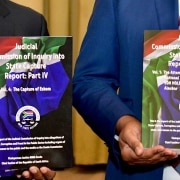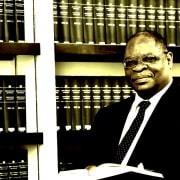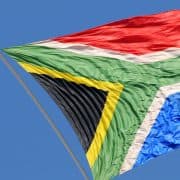|
Getting your Trinity Audio player ready...
|
As the image and governance standards of South Africa’s state owned entities (SOEs) are being restored by the recent appointments of new boards by Public Enterprises Minister Pravin Gordhan, and the Commission of Inquiry into State Capture hits the ground running, we marked the first 100 days of President Cyril Ramaphosa’s administration.
His term so far has been symbolised by several decisive moves aimed at reforming the public office and the law enforcement agencies that govern them. The work of the commission, led by Deputy Chief Justice Raymond Zondo and appointed by former president Jacob Zuma, will take some time before South Africans know if it is bearing fruit. However, their recent call for members of the public to report in earnest to them any incidents or occurrences of corruption in public office, should be seen as a step in the right direction.
Corruption and political capture have characterised the management of SOEs over the last few years, with many of their board members appearing to be irregularly influenced. When Ramaphosa delivered his maiden State of the Nation Address in February this year, he promised radical changes to the way SOEs will be run going forward, and these changes are starting to show.
“We are determined to build a society defined by decency and integrity, that does not tolerate the plunder of public resources, nor the theft by corporate criminals of the hard-earned savings of ordinary people,” he said at that time.
“We will change the way that boards are appointed so that only people with expertise, experience and integrity serve in these vital positions. We will remove board members from any role in procurement and work with the Auditor-General to strengthen external audit processes.
“This is the year in which we will turn the tide of corruption in our public institutions. The criminal justice institutions have been taking initiatives that will enable us to deal effectively with corruption.”
The public institution problem is just one area of Ramaphosa’s governance that has seen changes. There are others.
Turning SOEs around
Gordhan on Thursday last week announced changes to the boards of troubled SOEs. He confirmed Phakamani Hadebe as the new CEO of Eskom, a move that has received widespread support. Eskom has made headlines over a number of years over its procurement practices, particularly those pertaining to its business with contractors linked to the Gupta brothers.
The power utility’s current supply of coal has come under question as concerns rise over its ability to carry out its mandate, particularly over the high-demand winter period. It has since refuted these claims, saying it is business as usual. Many of those tainted in Eskom’s dubious deals have either since resigned or been removed.
Renowned business leader Jabu Mabuza is now at the helm as board chairman.
SARS and Tom Moyane
In an unexpected but welcomed move, Ramaphosa recently removed Corruption Watch board member and former Constitutional Court judge Kate O’ Regan from the disciplinary process of SARS commissioner Tom Moyane. Ramahosa said this was in the best interest of transparency following the objection of Moyane’s legal team to O’Regan’s appointment, citing a conflict of interest.
Corruption Watch is pursuing legal action against Moyane through the National Prosecuting Authority (NPA). Moyane was suspended by Ramaphosa‚ who has accused him of gross misconduct over his handling of an investigation into former senior SARS official Jonas Makwakwa. It is for the same reason that Corruption Watch sought action against him, on the basis that Moyane did not investigate Makwakwa himself or report the alleged wrongdoing to authorities, despite evidence showing suspicious conduct involving the latter and public resources.
“While the President is certain that Judge O’Regan would have adjudicated the matter objectively and that her position did not present a conflict‚ he decided that it would nevertheless be important to remove any possible perception of bias‚” the statement said.
NPA and Hawks
The Hawks also have a new head, Godfrey Lebeya. His appointment has also been hailed as a good move for the unit, which has come under fire for some time for surrendering its powers to investigate certain allegations against powerful individuals amid political pressure.
There has been a substantial number of cases that are perceived to have been “unblocked” within the Hawks. The Free State and North West provincial administrations have both had to answer to Hawks’ scrutiny. There were also raids of the Gupta family compound in Saxonwold as well as several of their businesses.
Cabinet
As expected, Ramaphosa made changes to the Zuma Cabinet soon after his inauguration. Ministers perceived to have facilitated the state capture project were shown the door, while appointments were made to support the “New dawn” agenda.
Gordhan and Nhlanhla Nene, who were both fired by Zuma while they held the finance portfolio, were brought back, with Nene’s return signifying a change of attitude within the markets and rating agencies. Gordhan, on the other hand, is expected to be instrumental in turning around SOEs, the running of which he openly criticised during his time as finance minister.
One of the bad apples removed is the former minister of social development, Bathabile Dlamini, under whom the South African Social Security Agency plunged into disarray on several fronts, not least with regards to the legalities of its grants distribution contractor, Cash Paymaster Services. Dlamini still holds a Cabinet position as the minister of women in the Presidency – under Ramaphosa’s watchful eye.
• Image: Flickr / GovernmentZA








